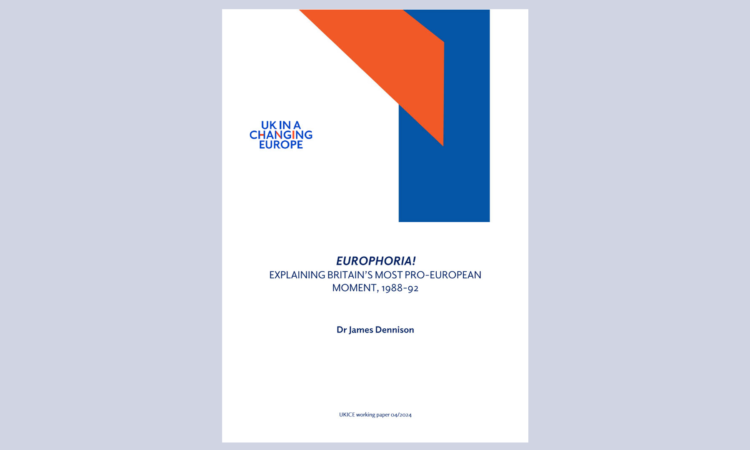
Britons have long been characterised as ‘reluctant Europeans’. This working paper expounds a period in which Britain was composed of highly ‘enthusiastic Europeans’ and, to explain it, proposes an expanded ‘calculation, cues, and community’ theoretical framework including emotions, events, non-material calculations, and a dynamic understanding of ‘Europe’.
It thus contributes to explaining typically overlooked temporal variation in support for European integration. ‘Europhoria’ is thereafter explained using: (1) emotional, financial, rights-based, and geopolitical calculations driven by the emotional anticipation of ‘1992’ and trust engendered by unrealised negative predictions before the 1975 referendum; (2) ‘proactive’ – rather than ‘reluctant’ – domestic European policy leading to harmonious, influential, insider, partnership status; (3) benchmarking of comparable, better performing European economies; and – the only factor remaining today – (4) newfound belief that Europe was Britain’s most important international community.
‘Europhoria’ interplayed with a sense of European identity stimulated by the fall of the Berlin Wall and unusually ‘European’ cultural trends in media, sports, and arts. The removal or reversal of most of these factors -often at pan-European level – explains the British return to Euroscepticism thereafter.
A summary of the paper by its author Dr James Dennison can be found here.






